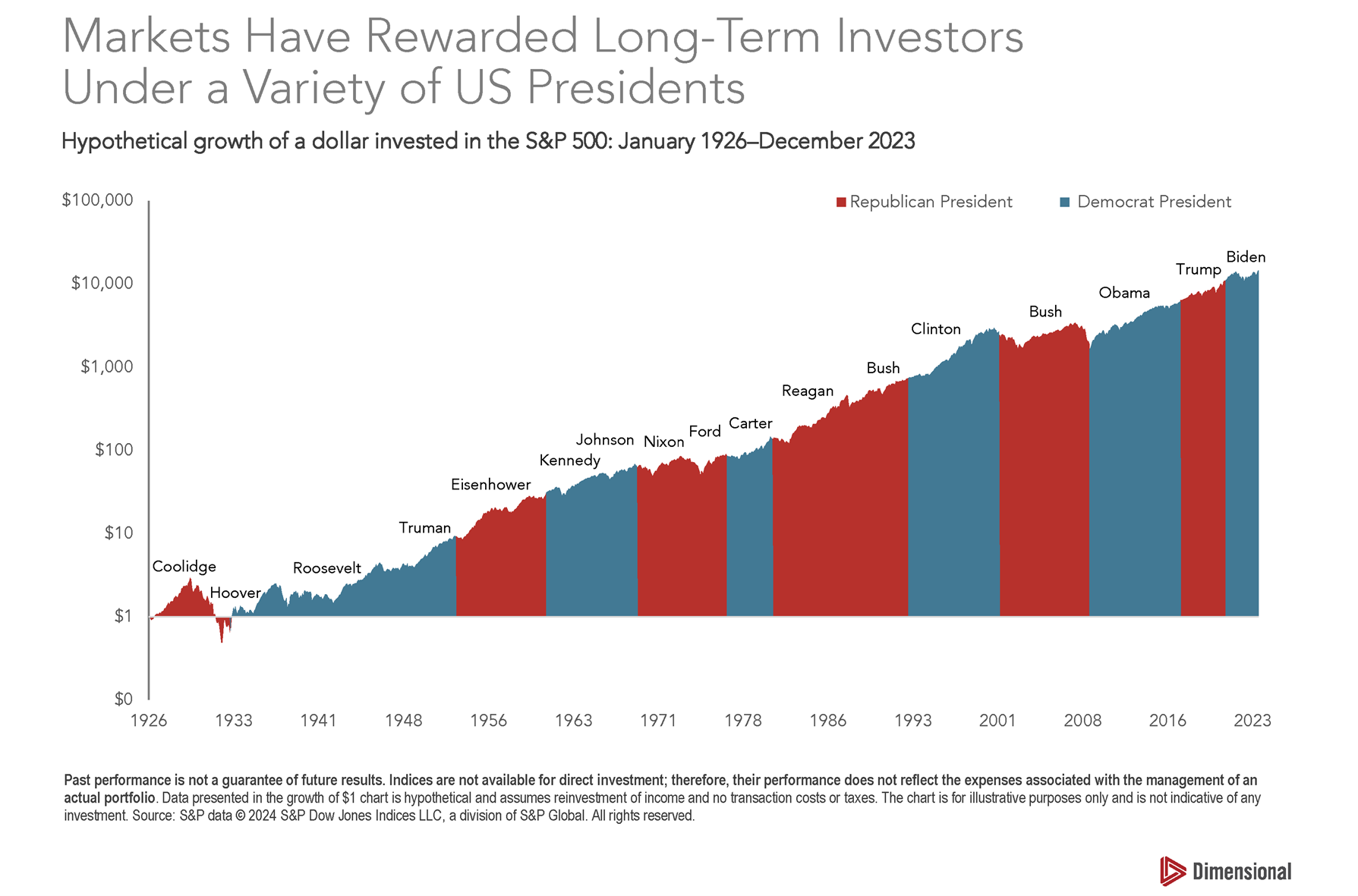Election season can resemble a fictional TV drama at times, with unexpected plot twists. The failed assassination attempt of former President Donald Trump serves as a startling reminder of just how unpredictable the future can be.
Amid this political turmoil, investors may feel either nervous about the impact of elections on their money or thinking they can take advantage of some anticipated outcome. Will stocks soar if their candidate wins? Or plummet if the other side is in control? The truth, as history shows us, is more reassuring than you might expect.
Let’s take a look at what the numbers tell us. While the ups and downs may be driven by the uncertainty of the political landscape, the long-term outcome is often positive, regardless of who came out the victor. According to BlackRock, “Stocks historically outperform their long-term average in election years, with the second half of the year typically the strongest.”1
Does this mean you should count on a strong stock market for the second half of 2024? Not necessarily. The 2000 and 2008 election years are two examples in which the S&P 500 Index was negative from July through December.
Dimensional’s insights add the nuance that returns during election months are pretty evenly dispersed across a range of outcomes, whether the victor is Republican or Democrat. In other words, there simply is no clear pattern, even if the outcome were known, that can be reliably used to predict market movements.

Looking beyond the election, the historical returns have been stronger under Democratic presidents as compared to Republicans. However, attributing market performance to the party in power is a tricky, if not impossible, endeavor. For instance, a Republican administration cannot be solely responsible for the financial crisis of 2008, just as a Democratic administration cannot be solely credited for significant returns within the technology sector throughout the tech bubble but none of its aftermath.2 Even when parties are relatively consistent over time on policies they aim to implement, market outcomes do not align predictably with these policies.
While elections undoubtedly influence market sentiment and can lead to short-term fluctuations, the broader trends in market performance are shaped by a myriad of factors beyond the immediate political environment. Rather than attempting to time the market based on election outcomes, investors benefit from maintaining a diversified portfolio and focusing on long-term investment goals.
By understanding the historical context and maintaining a disciplined investment approach aligned with their personal and financial goals, investors can navigate through the uncertainties of election years regardless of what happens or who wins. This election season, which has already proven chaotic, you would be wise to watch the events unfold without letting them drive your investment decisions.
SOURCES
1 Mark Peterson, “How the U.S. Election May Impact Your Portfolio.” BlackRock, February 16, 2024.
2 Meera Pandit, “How Sectors Perform Under Republicans vs. Democrats.” J.P. Morgan Asset Management, January 3, 2024.
By clicking on a third-party link, you will leave the Forum website. Forum is linking to this third-party site to share information in a different format and is for informational purposes only. However, Forum cannot attest to the accuracy of information provided by this site or any other linked site. Forum does not endorse the site sponsors or the information or products presented there. Privacy and security policies may differ from those practiced by Forum.





